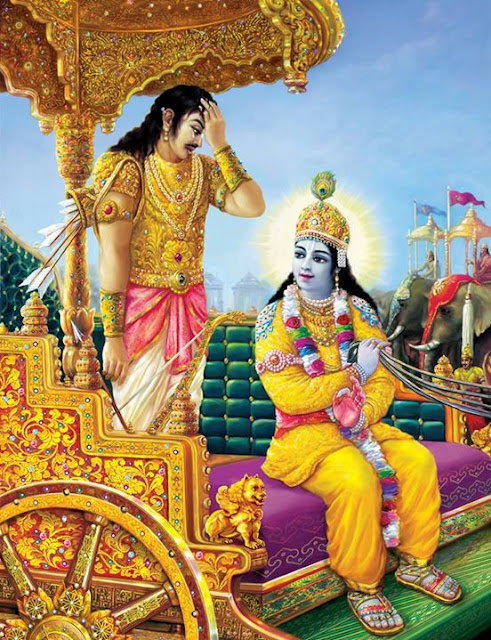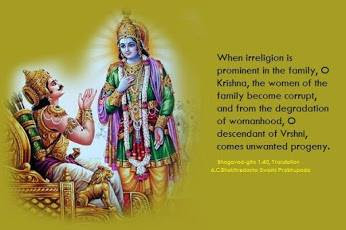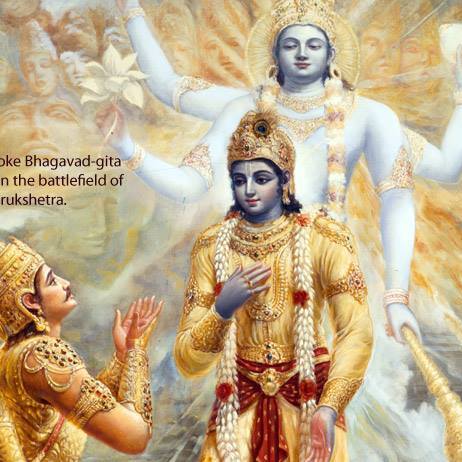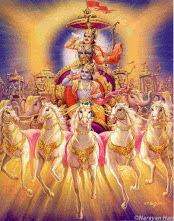The Spiritual Import of the Mahabharata and the Bhagavadgita :13-10.

Chapter 13: Centring the Mind in the Heart-10. The significance behind this chant is, again, not merely to utter a word or make a sound, but to set up a vibration. And what sort of vibration it will be can be known by each one of you by actually resorting to this practice. The chanting has to be done with a calm and settled mood. The personality has to be felt as if it is melting away into the atmosphere, so that the vibrations that are the sum and substance, or the material of the things of the world, become in tune with the substance of our own body or personality. This means to say, we reduce ourselves to the Ultimate Cause from which the effects have come forth in the form of the various bodies of individuals. All bodies can be reduced to a single vibration, a universal continuum of energy, whether it is the body of a man, the body of an animal, the body of a tree, or the body of a stone—it makes no difference. Any substance, any body, any embodiment can be converted into an ene...





